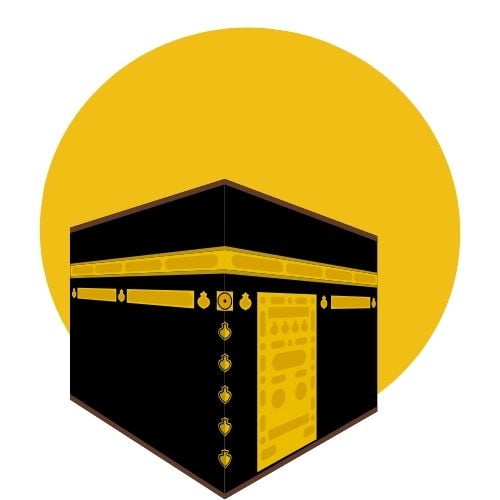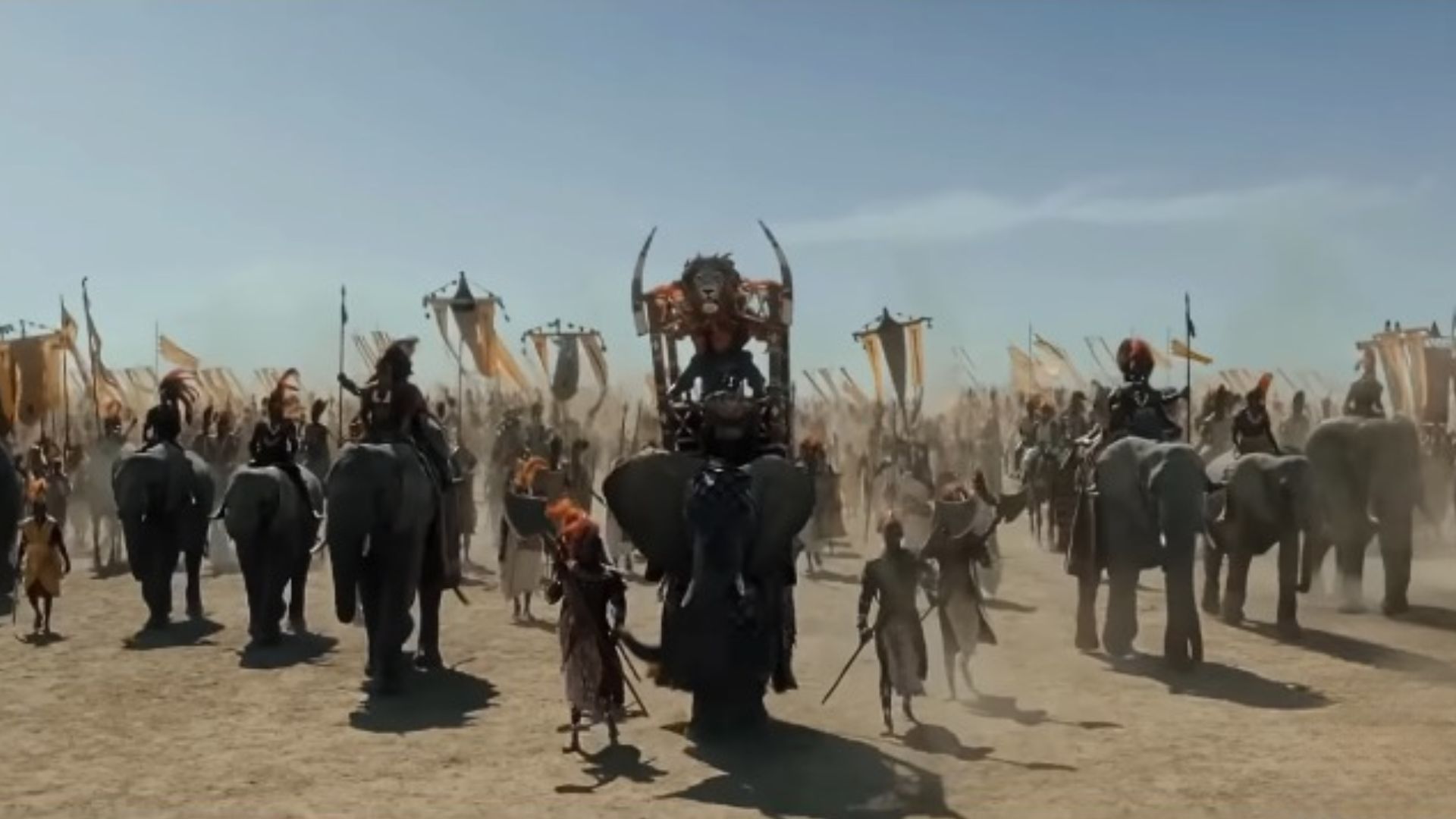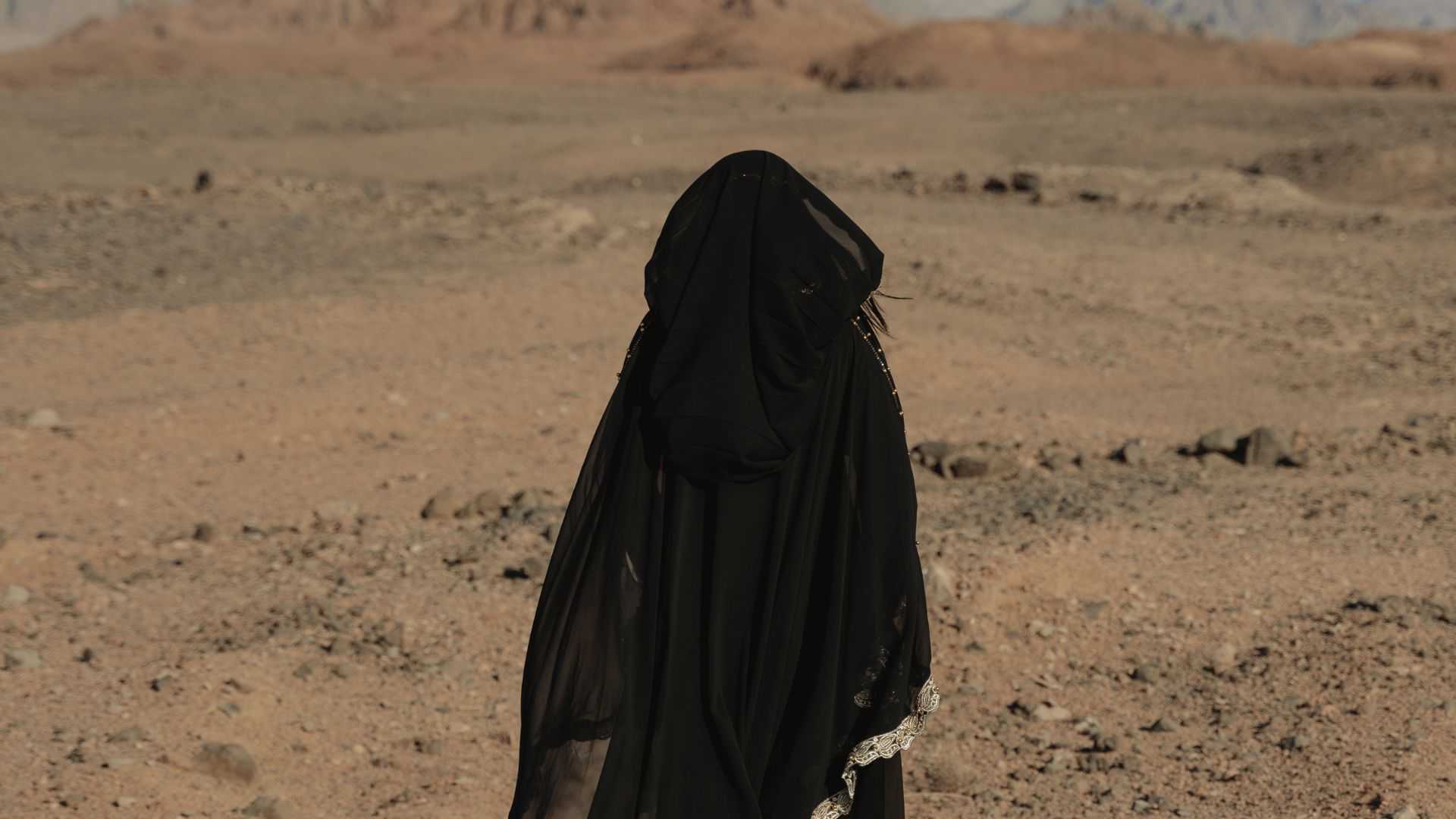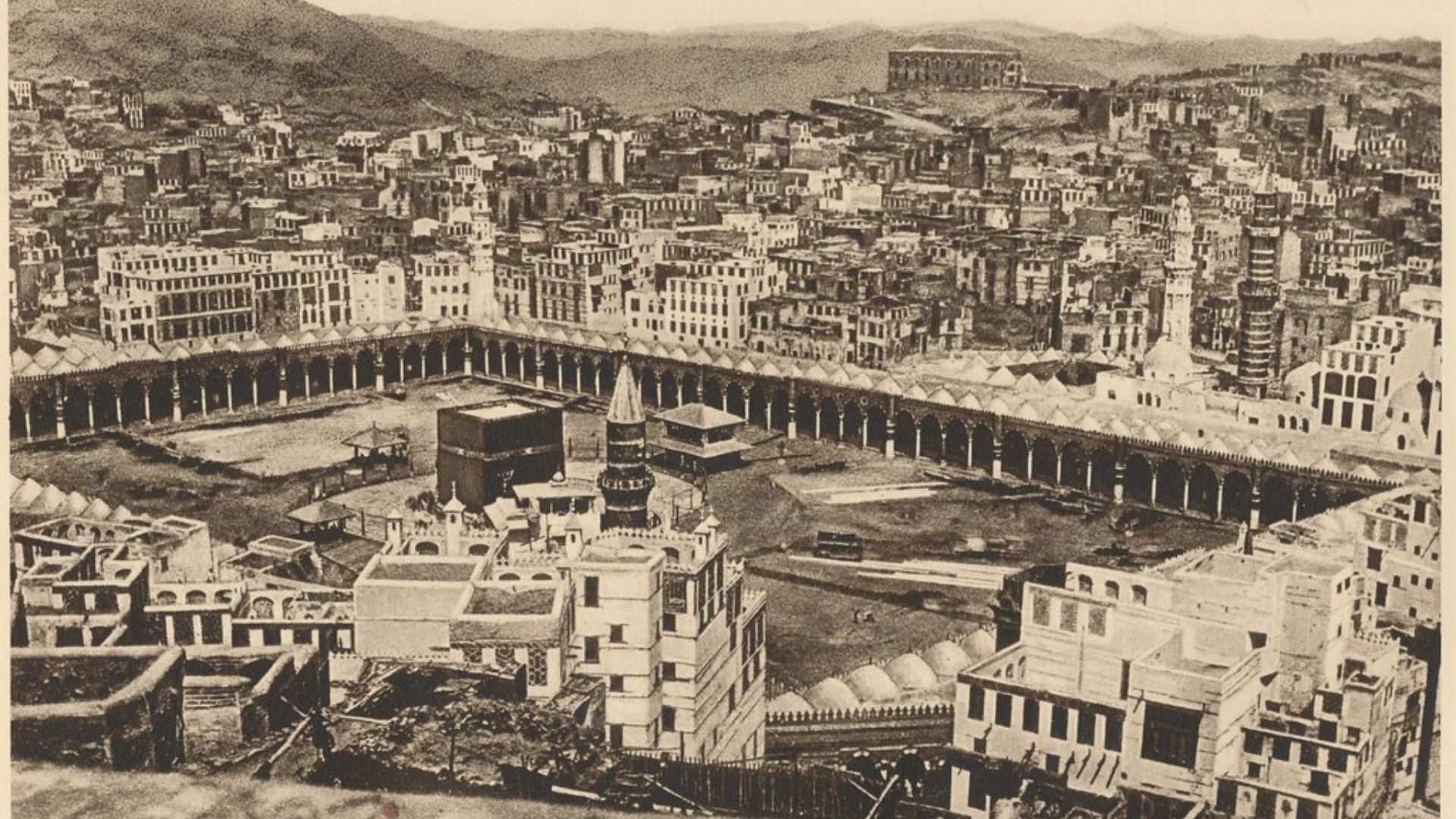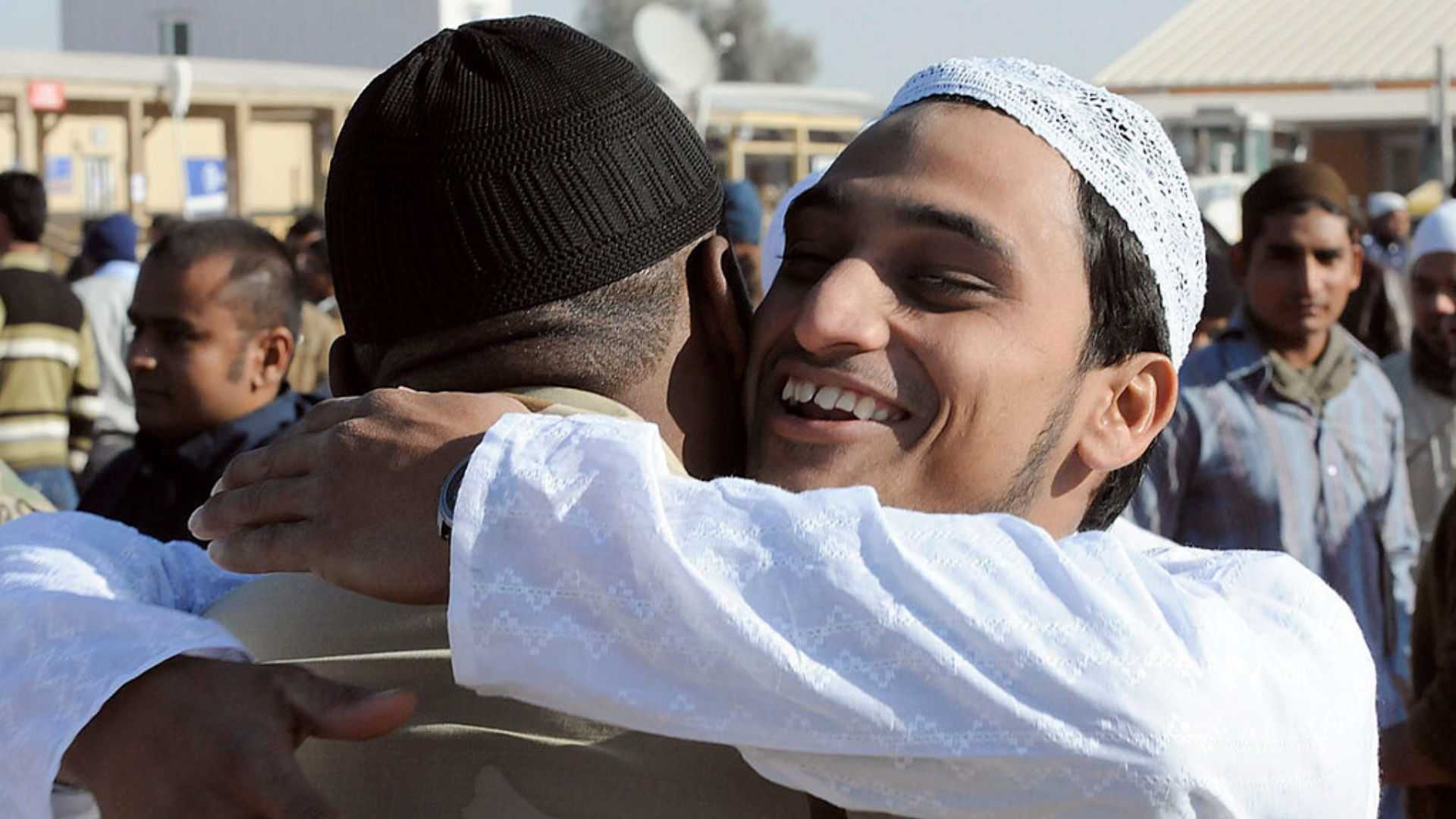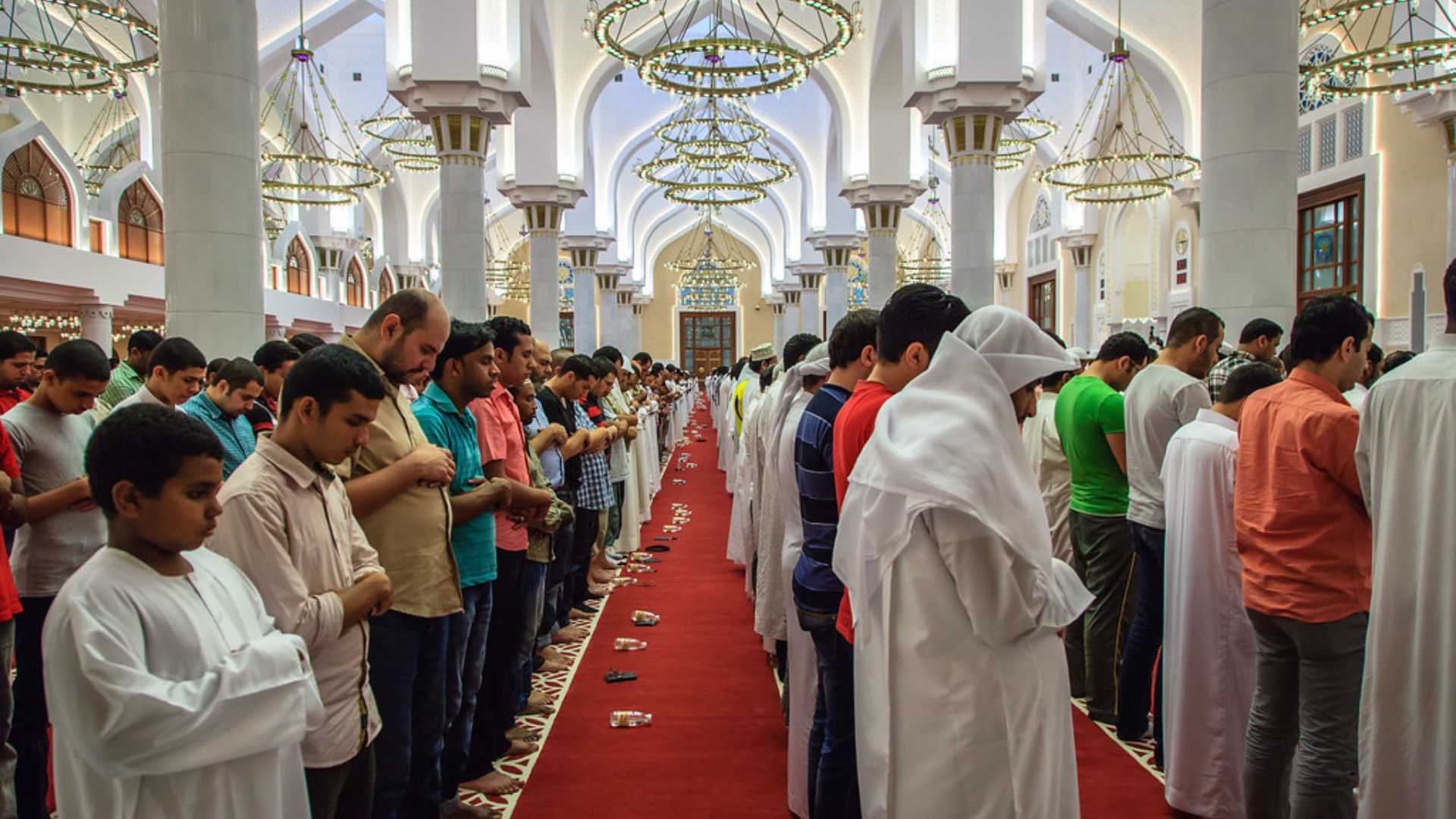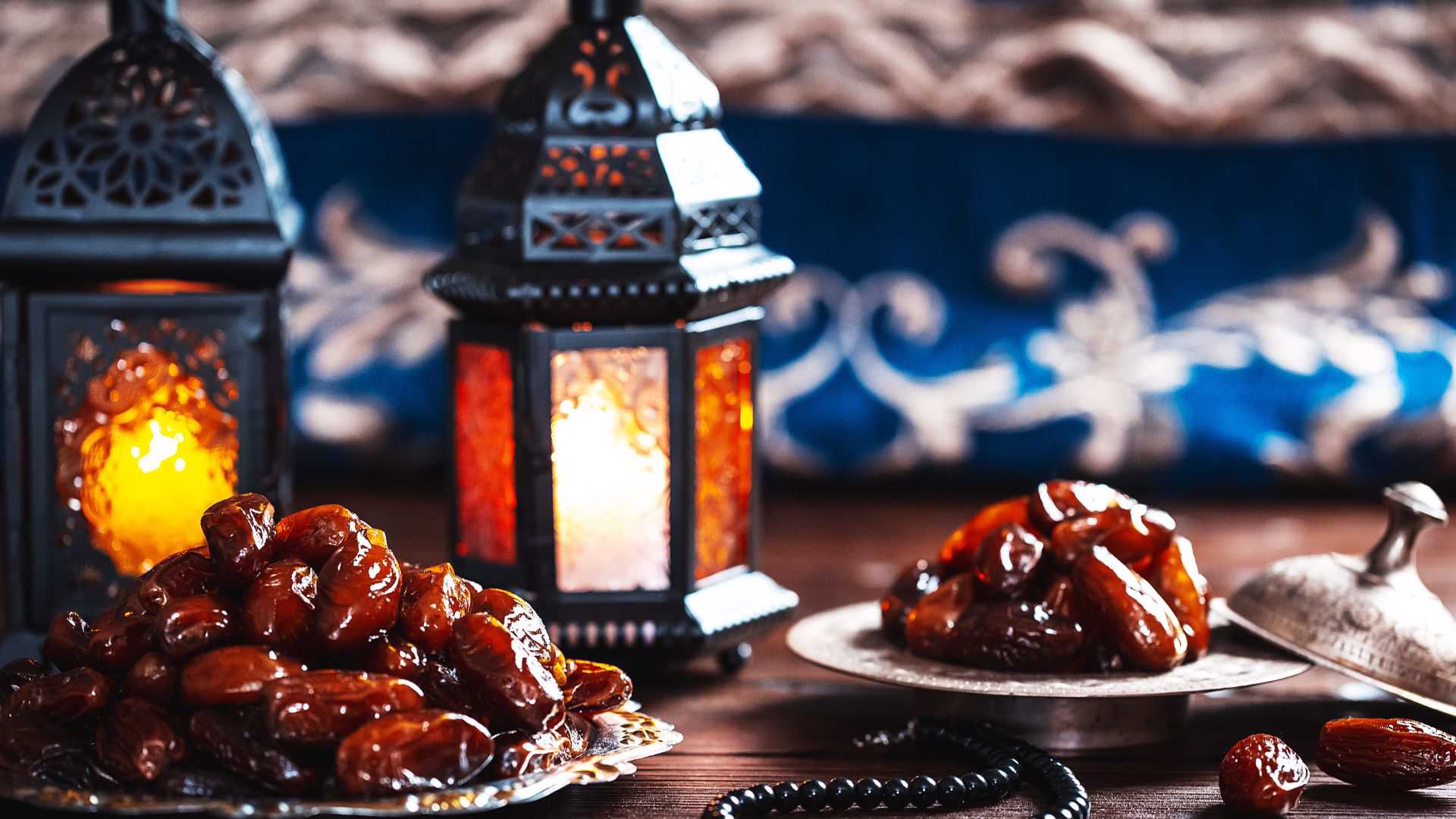Overview of Karbala
The battle between good and evil, the righteous and the wicked, and the conflict between Imam Husayn (the epitome of virtue) and the Yazid (the head of impiety) are all reflected in the events and Battle of Karbala . Hazrat Imam Hussain was a revolutionary, virtuous man, the leader of the Muslim Ummah, and the Imam.
Imam Husayn’s primary goals as the successor to his grandfather, Prophet Muhammad (S), were to uphold and defend Islam and instruct Muslims. On the other hand, Mu’awiya and his son Yazid’s ability to remain in power was entirely reliant on the might of the sword. Even by the most illegal measures available, they ruled the Muslim empire with sheer force.
As the leader of Ahlul Bayt (a.s.), Imam Husayn never acknowledged Mu’awiya or his adherents. Prior to him, Imam Ali (a.s.) engaged in combat with Mu’awiya because Mu’awiya persistently disregarded Islamic teachings. For the sake of preserving the security of the Ummah, which was in jeopardy, Imam Al-Hasan (a.s.) was forced to swallow the painful pill of signing a peace treaty with Mu’awiya.
Yazid son of Mu’awiya sought loyalty from Imam Al-Husayn (a.s.) when he proclaimed himself to be the ruler of the Ummah. Yazid’s reign and behaviour were categorically condemned by Imam Husayn on his part since it was impossible for Yazid to speak for Islam without doing so, which is blasphemy. Tension between the parties grew as a result of Yazid’s obstinate demand, the tyrannical ruler of the Ummah.
Imam Husayn was quick to understand that pledging loyalty to Yazid would be futile and would only endanger the continued existence of Islam. Therefore, the Imam was forced to confront and collide with Yazid’s tyranny regardless of the repercussions in order to defend and protect Islam. Yazid had instructed his commanders to seize the Imam’s loyalty at all costs, even by using ruthless force, therefore the commanders had to gather a sizable army and surround Imam Husayn’s camp in the Karbala desert.
Then they shut off the camp’s access to basic essentials like water. Imam Husayn’s camp included his family, relatives, and companions, all of whom remained steadfastly by his side. These courageous people would sooner sacrifice their lives for the just cause of Islam than bow to Yazid’s egregious dictatorship and anti-Islamic practises.
Karbala thus turned out to be a conflict between Islamic truths and lies, right and wrong, belief and disbelief, as well as downtrodden people and their oppressors, faith and force. Karbala was about defending oneself against oppression at all costs. Imam Al-Husayn, the 57-year-old grandson of the Prophet Muhammad (S), so gave everything he had in Battle of Karbala to achieve a single purpose.
It was his intention to eventually allow truth to win over lies, and he accomplished it magnificently.
His objective was to thwart Mu’awiya’s son Yazid’s masterful scheme to impose permanent Bani Umayya authority over the Muslim Ummah (even at the expense of Islamic ideals), all in the name of Islam. Imam Husayn brilliantly foiled this plot and revealed the shady practises of the Bani Umayya, even if it cost him his life.
Mu’awiya: Who Was He?
Mu’awiya was the son of Abu Sufyan, a clan chief of the Quraish tribe’s Bani Umayya clan. Mu’awiya was raised in a clan of shrewd, worldly, materialistic, and power-hungry people. Only after the Prophet Muhammad (S) conquered Mecca did Mu’awiya convert to Islam. Those who converted to Islam in this way were known as Tulaqaa’ (a term scornfully used for the disbelievers who became Muslims to save their lives).
All four of Mu’awiya’s family—his father Abu Sufyan, mother Hind, and brother Yazid son of Abu Sufyan—were Tulaqaa’; Mu’awiya never forgot this disgrace for the rest of his life; he was unable to get it out of his head, so a feeling of ill-intentioned revenge perpetually pervaded his heart. Mu’awiya’s personality and goals were completely different from those of his sister Umm Habiba, one of the Holy Prophet’s wives (S). Umm Habiba was a real believer and a devout person, in contrast to Mu’awiya.
When the Muslims conquered Syria from the Byzantines, Hazrat Umar (Omar), the second Khalifa, nominated Yazid, son of Abu Sufyan, Mu’awiya’s brother, as governor of Syria. After Yazid, son of Abu Sufyan passed away from an illness a short while later, Omar replaced him with his brother Mu’awiya as the governor. As soon as he came into power, Mu’awiya made use of Syria’s vast state treasury for his own personal influence and to purchase favours.
As a result, he amassed a sizable base of support among some tribes, almost to the point of fanaticism. Later on, he took use of this to create a network of informants (spies) to spy on Ahlul Bayt (a.s.) and their followers.
Jamal Conflict
Despite Mu’awiya’s broad base of support, Imam Ali (a.s.) decided to depose him right away after ascending to the position of Khalifa. Mu’awiya had ruled Syria, Palestine, and Jordan for 17 years at that point. Mu’awiya become stubborn and refused to carry out ‘Ali’s instructions. He even refused to acknowledge ‘Ali or pledge allegiance or commitment to him, acting brazen and unapologetically.
Mu’awiya also disobeyed by setting up a rival government in Greater Syria and launching a campaign of treacherous allegations and damaging rumours against Hazrat Imam ‘Ali (a.s.). He falsely accused Imam ‘Ali of being responsible for the assassination of Uthman, the third Khalifa, and exhorted Muslims to use force to oppose the Imam. He continually propagated these infamous charges to stir up unrest against Hazrat Ali (a.s.).
Hazrat A’isha, the widow of the Prophet, also started to speak out a lot against Imam ‘Ali (a.s.). She advocated exacting retribution for Uthman’s blood. A group of 3,000 militants led by A’isha and Talha with the aid of Sahaaba (Companions) like Zubair and Talha then set out for Basrah. When the insurgents arrived in Basrah, they engaged in combat with the local authorities before taking over a section of the city. Following the occupation, these insurgents terrorised the populace by murdering at least 600 local Muslims, looting the treasury, and taking weapons from the armoury.
Imam Ali (a.s.) had to take action to restore peace and order because he was the Khalifa in authority and could not simply ignore the situation. He gave the command for his troops to head to Basra. Imam ‘Ali (a.s.) sought to convince the rebels commanded by A’isha, Zubair, and Talha to change their minds and forgo battle as the Imam’s soldiers approached Basrah, but he was unsuccessful. Talha was wounded and eventually bled to death during the conflict, even though Zubair chose not to participate.
Numerous thousands of people died. After the camel was crippled, A’isha slid off, but fortunately she wasn’t wounded. A’isha’s brother, Muhammad ibn Abu Bakr, was instructed by Imam Ali to escort A’isha to Medina with all honour and decency after taking her to Basrah for a few days. Al-Hasan (a.s.) and Al-Husayn (a.s.) travelled with the Prophet’s widow after leaving Basrah for a while before heading back.
For a few weeks, Imam Ali (a.s.) remained in Basrah to reestablish law and order. Just as the Prophet (S) had done when he defeated Mecca forty years before, he made up for the dead and resolved to pardon and absolve all of his enemies.
The Siffin Battle
Imam Ali (a.s.) got right to work getting ready for the anticipated fight with Mu’awiya when he got back to Kufa. By personally utilizing the public treasury for espionage and purchasing people’s loyalty, the rebellious Mu’awiya continued to transgress Islamic norms. The Syrian people wholeheartedly accepted him and the false narrative he provided. When the armies of the two sides finally met at Siffin, the result was a conflict known as the Battle of Siffin.
When Mu’awiya’s forces were on the verge of disintegration after the battle saw fierce action for nine days. His forces were scattered, running here and there in their retreat, and they were fleeing. When Mu’awiya was startled, tense, and terrified and getting ready to flee, he discovered a cunning deception. The ploy, which involved using the Holy Quran as a tool to abuse it and use it to his benefit, was vulgar and unworthy.
In order to startle the warriors of Imam ‘Ali, Mu’awiya instantly capitalized on this and ordered his fighters to hoist 500 Holy Qurans on the ends of spears. Even though it was shocking, this move did stop ‘Ali’s fighters’ attack and momentum because they were extremely religious men. Mu’awiya wanted to save his neck at the expense of the Quran itself, but Imam ‘Ali was quick to spot this deception since he understood how cunning Mu’awiya was.
In light of this, ‘Ali (a.s.) pushed his generals to continue fighting because victory was on the verge of being attained. Alas, Ali’s generals and soldiers were in disbelief since it was shocking to see the Holy Quran perched high atop spearheads. They were unable to take it. They didn’t want to fight; they wanted to take Mu’awiya up on his offer to stop the fighting and talk instead. The way the fight was resolved and the results of it were terrible, to put it mildly, especially for Ahlul Bayt and Islam.
According to legend, Ash’ath Ibn Qais, a general in Imam Ali’s camp, and Amr Ibnil Aas, a supporter of Mu’awiya, plotted to assassinate Imam ‘Ali while secretly acting as an agent for Mu’awiya. In this conflict, over 25,000 soldiers perished in Ali’s (a.s.) camp while 45,000 men perished in Mu’awiya’s camp.
Ammar Ibn Yasir, the famous Companion of the Prophet (S), who was 90 years old and fought on Imam ‘Ali’s side against Mu’awiya, was one of many notable persons from both sides who perished in the battle.
Next to Siffin
The generals of Imam Ali (a.s.), who halted the battle to negotiate with Mu’awiya, made the wrong choice of a negotiator. They steadfastly refused to accept Imam Ali’s choice and instead chose the inept governor of Kufa, Abu-Musa Ash’ari, who had already been removed from office by Imam Ali. Amr Ibnil Aas, a sly and cunning man, was chosen by Mu’awiya to represent him in the negotiations. For approximately a year, there was no negotiation between the two sides.
When the two negotiators faced off, it was evident that Ash’ari’s skills were insufficient to compete with Ibnil Aas. Ash’ari suggested during the negotiations that Mu’awiya and Imam Ali (a.s.) both resign and allow the populace to have elections for the Khilaafah. Ash’ari’s suggestion was promptly accepted by Amr Ibnil Aas, a man who is at best duplicitous, and Ash’ari was instructed to make the announcement first.
“We have decided not to consider ‘Ali or Mu’awiya for Khilaafah”, Ash’ari rose up and said. ” You have the right to elect or select anybody you see fit.” Next to him, the clever Amr Ibnil Aas rose and proclaimed, “O people! I won’t take Ali into account for the Khilaafah. But in my opinion, Mu’awiya is the right person for it.”
When they heard this (and realized they had been fooled), the crowd yelled indignantly, causing a commotion. The camp of Imam Ali (a.s.) was in disbelief; they had been betrayed, misled, and double-crossed, and they felt extremely hurt. They could not have predicted Amr’s treachery and trickery. They left the spot perplexed and thoroughly let down. As a result, a sizable portion of Imam Ali’s adherents split off to create a new organization they called the Kharijies, which is Arabic for “the Outsiders.”
The Khariji developed a fervent hatred for Imam ‘Ali and Mu’awiya. They devised a plan to kill Ali (a.s.) in Kufa, Mu’awiya in Syria, and Amr Ibnil Aas in Egypt after some of their members gathered in secret in Mecca. Three extremists agreed to carry out the attack the following day in the morning as the intended victims were making their way to the mosque to conduct the morning salat.
Ibn Muljim attacked Imam Ali (a.s.) and fatally wounded him, while Mu’awiya managed to flee with only a mild buttock wound. Amr Ibnil Aas was absent due to illness that day, and the Khariji murdered his replacement. When Imam Ali (a.s.) was wounded, he gave his 37-year-old son Al-Hasan the title of Imam and ruler of the Islamic state.
Mu’awiya and Imam Al-Hasan’s Peace Agreement
Imam Hasan (a.s.) had to deal with incredibly challenging circumstances right away. He noticed that Kufa, Basra, Medina, and other places were constantly filled with terror, anxiety, and great distress.
Mu’awiya’s mistreatment of true Muslims was the root cause of the fear, doubt, and instability. To defame Ahlul Bayt, Mu’awiya dispersed hidden spies throughout the world.
Imam Hasan is aware that his father, Imam ‘Ali (a.s.), engaged in fierce combat with Mu’awiya despite suffering significant losses on both sides of the conflict.
It was clear that a large number of families had been destroyed. Imam Hasan (a.s.) talked about the situation with his brother Husayn (a.s.) and other family members in light of all the circumstances. He revealed to them that he would reach a peace accord with Mu’awiya and abdicate till Mu’awiya passed away in order to stop the slaughter and give the Ummah a decent level of safety and security. After giving it some thought, Imam Hasan (a.s) decided to accept the terms Mu’awiya had agreed to and that the Imam had stipulated. There were four important clauses in this agreement:
– People from Syria, Iraq, the Hijaz, Yemen, and other countries will be granted protection from retaliation,
– Imam Ali’s (a.s.) friends and companions, as well as all of their women and children, shall be safeguarded from all threats.
– After Jumu’a Salat, Mu’awiya is to cease using derogatory language about Ahlul Bayt (including cursing Imam ‘Ali), and
– Mu’awiya is forbidden from choosing a successor.
Imam Hasan (a.s.) and his brother Husayn (a.s.) left Kufa after the treaty was completed and settled in Medina. There, the two Imams wasted little time in starting nightly gatherings to discuss Islam. The weekly gatherings were extremely well-received and popular. Attendance increased as more people came to hear the Imams share their wealth of knowledge about Islam and mankind.
These gatherings started to gain notoriety in distant locales. People came to Medina from far-off places like Egypt, Iraq, Yemen, and other distant locales to learn about Islamic principles. The knowledge thus imparted began to yield fruit as the years went by. Islamic academics proliferated and grew in number significantly.
Mu’awiya made the blatant decision to break the conditions of his agreement with Imam Al-Hasan in the interim.
a)He dispatched secret agents to intimidate, kidnap, or even murder innocent people, especially Ahlul Bayt supporters (a.s.).
b) Mu’awiya’s governors and their substitutes utilized the public treasury for personal use, freely and excessively as they pleased, rather than providing for the poor.
b) Dictatorship replaced freedom.
d) Mu’awiya collected a sizable group of accomplices who were willing to do anything for money.
Mu’awiya’s Plan to poison Imam Hasan (a.s.)
Despite the fact that Yazid was the womanizer of the day and had many bad habits like gambling, heavy drinking, and indulging in the pleasures of the flesh, Mu’awiya was adamantly determined to impose his son Yazid, who had been named after his uncle, upon the Muslims by appointing him as the next Khalifa.
The peace treaty, however, forbade Mu’awiya from designating Yazid as his successor; instead, it stipulated that Imam Hasan would succeed Mu’awiya as Khalifa right away. Mu’awiya understood that if Al-Hasan did not outlast him, he would be free to do as he liked. Therefore, Mu’awiya intended to assassinate Imam Al-Hasan in order to make room for his son Yazid to succeed him.
One of Mu’awiya’s operatives was dispatched to get in touch with Imam Al-wife Hasan’s Joda, who was the descendant of Al-Ash’ath, a former undercover Mu’awiya agent who battled Imam ‘Ali in the Battle of Siffin. Joda was promised a significant sum of money in exchange for doing a tiny favor, namely adding a small amount of poison to Al-food, Hasan’s as well as becoming Mu’awiya’s son Yazid’s wife. She naively decided to accept the offer since she felt it to be too alluring to reject. A few days later, she delivered the Imam some poison that she had mixed with honey.
The Imam fell gravely ill as soon as he ate the poisoned honey. The Imam named Al-Husayn (a.s.) as the third Imam because he believed his death was near. Even though Imam Al-Hasan was aware that he had been poisoned, he only told his brother Al-Husayn.
Al-Hasan had a particular desire to be buried next to his grandfather, Prophet Muhammad (S). Imam Husayn made all the necessary preparations to grant the wish, but Mu’awiya’s governor of Medina forbade it and intervened with force. Imam Al-Hasan passed away from poisoning at the age of 47.
After Imam Hasan left Medina, everything was never the same (a.s.). He was sorely missed by everyone. At first, many did not think Mu’awiya poisoned Imam Al-Hasan, but they soon learned the truth.
Husayn (a.s.) was 46 years old when he was chosen to be the third Imam. The same as previously, Imam Husayn (a.s.) continued to preach Islam. Many people kept coming to see him and to pick his brain. This procedure went on for a while until a nasty rumor that Mu’awiya wanted his son Yazid to succeed him started to spread.
Yazid is chosen as Mu’awiya’s successor
Mu’awiya started an initiative to include monarchy within the Islamic political system. Monarchy is not permissible in Islam since it is an innovation in the faith and cannot be imposed by any means. Everyone understood this since Islam rejects all forms of monarchy and inherited royalty. It is intended to be Shura in Islam.
Moods reached new heights. Mu’awiya made the decision to send his son Yazid on the pilgrimage to Mecca in an effort to temporarily settle the situation. Yazid did travel to Mecca, but only after bringing drink and a chorus of women for amusement.
To win their loyalty to his son Yazid, Mu’awiya sent his spies to the notable figures in the villages. However, Yazid was bad, a heavy drinker, inept, disdainful, and a pleasure-seeker. That was well known. Thus, the populace violently objected. Anger may be seen everywhere.
Death of Mu’awiya
Mu’awiya was advancing in years. He was gravely unwell when he was 75 years old. He was about to pass away. He appeared to be being choked and strangled as he lay helpless and motionless. He called out incessantly for mercy as he felt tortured and tormented. He was in excruciating discomfort. Although he wished to pass away, death would not approach him.
He was plagued by guilt over the tragedies he had inflicted on the Islamic Ummah, especially the Ahlul Bayt. Mu’awiya endured excruciating pain for days on end. He was still in pain when he passed away. The 30-year-old Yazid was not in the area at the time of his death; he had gone on a hunting excursion for amusement.
(Please note that Mu’awiya’s brother was by the name of Yazid, and he had named his son after his brother.)
Yazid takes the throne
After Mu’awiya passed away, Yazid, at 30 years old, was able to seize power and become the Khalifa. People initially rejected Yazid’s claims to be a representative of the Prophet (S) and the Islamic Ummah, but he persisted by asking for favors from them in mosques. Like his father Mu’awiya, Yazid sought to establish himself as the legitimate ruler of the people by any means necessary, including bribery, extortion, pressure, threats, and force.
Many individuals hesitantly and dejectedly gave in because they were fearful and the risks to their lives and way of life were too terrifying. But Imam Husayn (a.s.) and his family, who adhered to the authentic teachings of Islam, refused to compromise. Al-Husayn, the authentic heir of Prophet Muhammad (S), vehemently refused to recognize Yazid as the Khalifa or as the caliph of Islam. The Imam remained steadfast in his resolve and decided to defy Bani Umayya’s rulers in spite of Yazid’s menacing military might.
Waleed Ibn Ut’ba was given the task by Yazid, who appointed him governor of Medina, to demand loyalty from Imam Husayn and, if he refused, to order his execution. Al-Husayn was invited by Waleed to a meeting for this reason. Imam Husayn chose to leave Medina with his family and travel to Mecca after refusing to keep his commitment during the conference. Al-Husayn got 12,000 letters from Kufa pleading with him to travel there and serve as their leader and the Khalifa when he arrived in Mecca. Imam dispatched his cousin Muslim Ibn Aqeel as an emissary to Kufa in order to get firsthand knowledge about the state of affairs in Iraq.
Yazid, meanwhile, established a network of informants and undercover agents in Mecca to kill the Imam while he was on pilgrimage. Imam carefully assessed the situation in Mecca after learning about the spies. Yazid son of Mu’awiya had no regard for Islamic principles and teachings, and Imam Husayn was aware that he would stop at nothing to impose his despotic authority.
Imam Husayn was advised not to travel to Kufa by numerous friends and family members, but he persisted. In a huge caravan, Imam Husayn set out in the sweltering summer heat for the 1,100-mile journey to Kufa with family, friends, and companions.
Hazrat Imam Husayn also saw that Islam would be in grave danger if it pledged allegiance or loyalty to a conman like Yazid. In order to get ready for a battle with Yazid and his army, Hazrat Imam Hussain made the decision to depart from Mecca and travel to Kufa.
Heading to Karbala
Early on in the journey, the caravan encountered the renowned poet Al-Farazdaq at a location named al-Sifah. Al-Farazdaq cautioned the Imam against going to Kufa because even if the people there had their hearts with him (the Imam), they would oppose him with their swords. However, the Imam persisted in his travels and was pleased to learn from his agent Muslim Ibn Aqeel in his first letter.
According to the message, the populace in Kufa was eagerly anticipating the Imam’s guidance and was more than willing to receive him. Another ambassador carrying a message was dispatched to Kufa by Imam Husayn. The caravan continued on its way to Kufa. The Imam waited for Muslim Ibn Aqeel to respond for several days, but never did.
Muslim Bin Aqeel continued to meet in secret with the Imam’s supporters at Kufa with the aid of Mukhtar Al-Thaqafi and Hani Ibn Urwah. Shortly after they began, the gatherings picked up speed. Yazid discovered Muslim achievements at Kufa through his spies and informants. Al-Nu’man Ibn al-Basheer was replaced as the governor of Kufa by the tyrant Ubaidullah Ibn Ziyad, who was nominated by him.
Imam Husayn unexpectedly learned shocking news when Al-Husayn’s caravan approached its final destination (Kufa), arriving at a site named Zubalah. Muslim Ibn Aqeel and Hani’s Ibn Urwah, who gave him refuge, were both captured and murdered by the governor Ibn Ziyad, which was terrible news. Mukhtar was also detained, imprisoned, and subjected to torture by Ibn Ziyad.
The awful news was revealed to Imam Husayn’s companions, and he told them, “Our Shi’a have forsaken us; those of you who wish to leave us may do so freely and without guilt.” Becoming afraid, some comrades abandoned the caravan. Along with his closest friends and family members, Imam Husayn proceeded on his journey until he came face to face with 1,000 enemy horsemen under the command of Hurr al-Riyahi.
Hurr said, “We are mandated to accompany you until we deliver you to Governor Ibn Ziyad, and advised the Imam to travel in the direction of a station which is neither Kufa nor Medina.” The idea was accepted by Imam Husayn, who turned the caravan away from Kufa. Hurr marched alongside the Imam with his soldiers. When the two sides arrived in Nainawa, Ibn Ziyad (Yazid’s ruler over Kufa) sent Hurr a message through his messenger.
The notice said, “…bring Husayn to a standstill. But allow him to pause in an area devoid of either vegetation or bodies of water.” Hurr informed Imam Husayn of the letter’s contents.
Karbala
Governor Ibn Ziyad dispatched more troops to Karbala and put Umar Ibn Sa’ad in charge after discovering that his army had been successful in laying siege to the Imam’s camp. After engaging Umar Ibn Sa’ad in conversation, Imam Husayn (a.s.) persuaded him to end the siege so that the Imam, his family, and associates could depart Iraq.
Governor Ibn Ziyad received a communication from Umar Ibn Sa’ad informing him of the outcome of the discussions with Imam Husayn because he approved of the Imam’s suggestion (a.s.). Ibn Ziyad approved of the Imam’s suggestion as well. Before approving it formally though, Shimr Bin Dhil-Jawshan firmly disagreed with it. Ziyad sent a message to Umar Ibn Sa’ad telling him to choose between engaging Imam Husayn (a.s.) in battle or losing his position as an army leader, in which case Shimr would not only take over but also send Ibn Sa’ad’s head to Kufa.
The letter was received by Umar Ibn bin Saad. He considered the repercussions and ultimately chose to confront Imam Husayn (a.s.). He positioned his men closer to the camp on the seventh day of Muharram and started to encircle the Husaini camp. In an effort to pressure them into submission, Ibn Sa’ad built a barricade around the camp to prevent it from accessing the Euphrates river and rob them of water.
The enemy’s armed forces drew near to Imam Husayn’s camp two days later (on the 9th of Muharram) (a.s.). Imam requested that his brother Abbas speak with Ibn Sa’ad on his behalf and ask him to postpone the attack by one night. The demand was accepted by Umar Ibn Sa’ad. He gave his men the order to wait.
That night, Imam Husayn and his pious friends prayed. As the night wore on, the Imam spoke to his friends “The adversary is only interested in me and me alone. I strongly encourage you to return because I will be more than happy to let you all do so.” In answer, all of the companions cried, “Never, ever, by Allah! Either we will live or we shall die beside you.”
Ashuraa
The day of Ashura finally broke upon the ground of Karbala. It was the day when the Jihad would be in full swing when there would be bloodshed, when 72 innocent lives would be killed, and when a crucial conflict would be won to save Islam and the Ummah.
The attackers had shut off the water supply a few days before. Zainul-Abideen, the son of Imam Husayn (a.s.), was ill with a fever and the women and children were pleading for water. Too much misery was being experienced from the thirst. And yet, not a single individual in the camp voiced any displeasure or even questioned Imam Husayn’s goal. Each participant warmly and totally backed the Imam.
The following morning, when Imam Husayn (a.s.) left the camp, he noticed Umar Ibn Sa’ad assembling his forces in preparation for war. Despite the size of the frightening force, Imam Husayn did not exhibit any signals of capitulation. Imam Husain prayed while raising his hands:
“O Allah! It is Thee in whom I trust amid all grief. You are my hope amid all violence. Thou are my refuge and provision in everything that happens to me. How many grievances weaken the heart, leaving me with no means to handle them, during which friend deserts me, and enemy rejoices in it. I lay it before Thee and complain of it to Thee, because of my desire in Thee, Thee alone. You relieve me of it and remove it from me. Thou are the Master of all Grace, the Essence of Goodness, and the Ultimate Resort of all Desire.”
Hurr, the prior commander of the enemy force, felt his guilt roiling before the real conflict began, and he was tormented. He abruptly broke away from Umar Ibn Sa’ad’s camp when he realized the seriousness of the situation (along with two others). To join Imam Husayn’s camp, they dashed in his direction.
Hurr’s thoughts was free of an awful tightness, and his heart was thumping with delight. Umar Ibn Sa’ad was extremely concerned that others would follow Hurr’s example and defect as well. In order to signal the start of the war, Umar Ibn Sa’ad shot an arrow into the air. This marked the beginning of a tragedy and sad occurrence that Mu’awiya had once imagined would occur.
The Battle
The followers of Imam Husayn insisted on starting the battle first. As a result, they took most of the hostile attacks. The conflict was fierce. The Imam’s supporters quickly kill a significant number of opposition warriors; they were on the attack and the adversary was on the back foot. When Husayn’s 72 soldiers faced the enemy’s 5,000 (some say 30,000) soldiers, it put the enemy force on edge and confused.
The enemy commander-in-chief was so alarmed and anxious that he not only gave his army orders to burn the Imam’s tents, which were largely inhabited by terrified women and children but also to increase the number of soldiers supporting his forces.
Because the enemy was so numerous and overwhelming, the heroes started to fall one by one. These men of heroism welcomed martyrdom. By midday, the Imam had put an end to the conflict so that he could worship (prayer). All that was left by this point was basically his family and a few of his followers. Together, they performed the Salat. The Salat performers were being protected by two supporters. The adversary was observant and still! One of the guards was dead when Salat was done; there were 17 arrows in his back.
Husayn’s son, ‘Ali Akbar, ran in the direction of the opponent after getting the go-ahead to fight. He fought them in ferocious combat before unleashing a thunderous attack that left several fighters dead. Deep inside the adversary, he kept moving ahead. The opposition, who was numerous and overwhelming, cut him with swords and spears, leaving only bloody wounds on his body before he died.
As soon as he arrived, Imam Husayn (a.s.) picked up the limp, wounded body and carried it to the horrified camp. The incident startled and stunned his sister as well as other campers.
Abbas and five other Imam Husayn brothers proceeded to engage in combat. They also fought the opposition in ferocious combat, nearly pulling off the impossible. To get some water for the children who were thirsty, Abbas headed toward the river. He was assaulted by a sizable horde of the enemy while riding back on his horse with the water, overwhelming and seriously wounding him. Despite his best efforts, Abbas was unable to preserve the water; as a result, he fell from his horse and succumbed.
The sons of Imam Al-Hasan and Zainab, along with their cousins, arrived at the combat area (about 17 of them). Although they were all in their teens, they each showed the same level of zeal and courage in the face of a dangerous foe.
Al-Husayn with His Baby
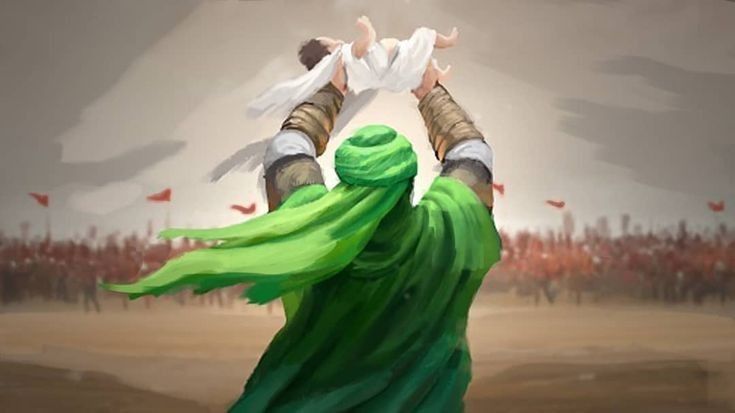
By the afternoon, 70 valiant people had died in Karbala defending Islam. All had to fight in tense situations while suffering from extreme thirst, dehydration, tiredness, and an excruciating fear of what would happen to the Prophet’s (S) family later. Husayn withstood all of that and more since he witnessed the violent dismemberment of all of his loved ones, including his children. Imam Husayn had to confront the adversary alone while being the sole survivor.
Imam Husayn heard his infant sobbing unceasingly at that same moment, suffering from thirst. Imam Husayn had an unrestricted affection for his family, especially a baby who was in pain. His youngest son (‘Ali Asghar), who was six months old, was in his arms as he made an appeal to the enemies for some water for the baby.
The imam attempted to awaken their conscience and stir their human emotions, but the hard-hearted opponent shot an arrow at the crying infant, quickly killing him. Imam Husayn expressed shock. He experienced excruciating pain in waves. It hurt him to look at the limp infant in his arms. He poured the baby’s blood onto his hand, tossed it up into the sky, and cried out to Allah (swt),
“O’ Allah, O’ my Lord! My consolation is the fact that Thou in Thine Majesty are witnessing what I am going through.”
Imam Husayn All Alone
One man against multitudes, Imam Husain (a.s.). He fearlessly confronted them and engaged them in combat, suffering numerous wounds in the process. He was surrounded by thousands of hostile warriors, but none ventured to approach him.
The silence was broken when Shimr screamed for an attack, and then screamed again, threatening, As a result, they all struck at once, and one sword landed on Imam Husayn’s left wrist and severely sliced his left hand. The blood poured out like a waterfall.
A second sword soon after struck him in the upper back. As he bled excessively and fell to the ground, Imam Husayn (a.s.) felt numb. Even though he was stumbling and on the verge of shock, he tried to stand by leaning on his sword. Then he received the fatal blow.
The splendid head of Imam Husayn, which the Prophet (S) frequently kissed, was afterward separated from the body by Shimr, whose mother was a disbeliever. Shimr and others had the nerve to transport it 600 miles away to Yazid on the end of a spear!
As if the wounds, the wounded bodies, and the headless forms weren’t already disfiguring enough, Umar Ibn Sa’ad ordered the horses to stomp upon the fallen bodies of Imam Husayn and all others martyred.
The martyrs’ uncovered bodies were left to rot in the Karbala desert for three days. Following the battle, the Bani-Asad tribe members who were nearby the area of combat assisted in burying the bodies.
The women and children were taken as captives in shackles by Umar Ibn Sa’ad and his warriors (representing the Bani Umayya), who then transported them from Karbala to Kufa in a caravan. The heads of Imam Husain (a.s.) and his disciples were carried at the front of the procession on speartips. The scene was both tragic and disgusting. These was the remaining members of the Prophet Muhammad’s (S) cherished family, and they were in such abhorrent, unfathomable condition—all because of Muslims, of all people!
Learnings from the Tragedy and Battle of Karbala
The worst disaster humanity has ever experienced occurred at the Battle of Karbala. However, the shocking (and horrifying) events in the Battle of Karbala proved to be like a tremendous volcano that shook the very foundation of Muslims, awakening both the ignorant and the learned to the realities around them. For true Muslims, the battle of Karbala ended in victory. The sad incident served as a constant reminder to Muslims to practice Islam honestly and genuinely, to do what is right regardless of the consequences, and to have no fear save for Allah (swt).
However, Yazid was never able to accomplish what he and his father had set out to do since, within three years, he was killed at the age of 33 by Allah’s wrath. Moreover, in a few years, the Bani Umayya crumbled and ended.
The tragedy and Battle of Karbala gave humanity the lesson that, even when Islam’s survival was at stake, it is more respectable and worthwhile to stand up for the truth and fight to the death for it.
To read more such Stories, Visit our Blog or Read the History of Islam.
Follow us on Social Media to get daily Islamic reminders.

